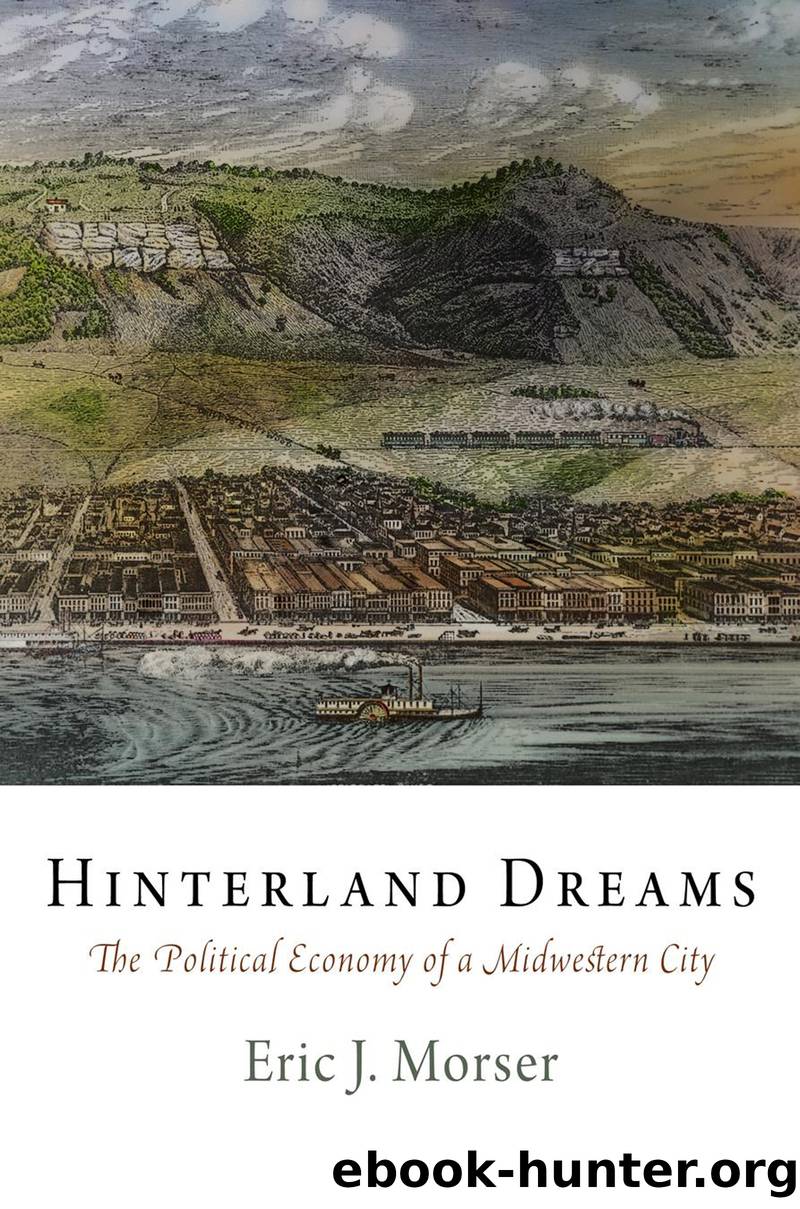Hinterland Dreams by Morser Eric J.;

Author:Morser, Eric J.;
Language: eng
Format: epub
Publisher: University of Pennsylvania Press
Published: 2019-08-15T00:00:00+00:00
The Battle for Municipal Power
Within this context of growing unrest, many La Crosse workers, much like workers in larger industrial cities such as New York and Chicago, began to envision municipal power as a potentially effective tool to advance their cause.22 Winning control of city hall in 1885, however, was easier said than done. Since midcentury, businessmen and professionals had controlled both the mayorâs office and Common Council. Between 1856 and 1884 local voters had elected as their mayor six merchants, three real estate agents, three attorneys, two bankers, and an engineer.23 Not surprisingly, lumbermen maintained an active presence in the affairs of this midwestern logging city. During this time, four lumber barons and mill owners served as mayor and several held seats on the council.24 These politicians used their power to set favorable tax rates for business interests, invest public money in railroads, and boost the fortunes of city capitalists. They were backed by partisan newspaper editors, most notably W. R. Finch of the Republican and Leader and Ellis B. Usher of the Democratic Morning Chronicle, who actively supported their political and economic positions on the pages of daily and weekly newspapers in the river city. By 1885, local capitalists appeared firmly in charge of municipal government in La Crosse.
To topple the two-party political establishment, La Crosse workers needed to find appealing political candidates who could represent their interests without alienating other voters in the city. Perhaps they took inspiration from Terrence V. Powderly. In 1878, Powderly, who eventually made a name for himself as leader of the Knights of Labor, a national union that would eventually rally hundreds of thousands of employees behind such issues as the eight-hour workday in the 1880s, won the hearts of local workers and also assuaged the simmering fears of business leaders to become mayor of Scranton, Pennsylvania.25
Whether or not Powderly was a model, Powell was an ideal candidate to excite workers and remake city politics in 1885. First, he was an energetic self-promoter. For years, he had penned a series of autobiographical newspaper articles that celebrated his medical skills.26 He had also long played up his Iroquois ancestry to cultivate an image as a rough-and-ready child of the Wild West. Powell not only counted Buffalo Bill Cody as a close friend but he himself had been the subject of several pulp westerns that had sold reasonably well.27 To add to the effect, he strolled the streets of La Crosse in a large cowboy hat and encouraged fellow city residents to call him by his adopted Indian name, âWhite Beaver.â Second, Powell was a strong candidate because he understood a new political reality; the two major parties in the city had little to offer disgruntled workers. Powellâs recognition of workersâ potential electoral power in La Crosse, as much as his vibrant persona, made him a formidable independent candidate for the mayorâs office in 1885.
Although Powell recognized the growing electoral power of La Crosse workers, he never claimed to be a worker and was reluctant to ally with either organized unions or established labor parties like the Socialists.
Download
This site does not store any files on its server. We only index and link to content provided by other sites. Please contact the content providers to delete copyright contents if any and email us, we'll remove relevant links or contents immediately.
The Secret History by Donna Tartt(16657)
The Social Justice Warrior Handbook by Lisa De Pasquale(11493)
Thirteen Reasons Why by Jay Asher(7801)
This Is How You Lose Her by Junot Diaz(5798)
Weapons of Math Destruction by Cathy O'Neil(5046)
Zero to One by Peter Thiel(4834)
The Myth of the Strong Leader by Archie Brown(4795)
Promise Me, Dad by Joe Biden(4455)
Beartown by Fredrik Backman(4433)
Stone's Rules by Roger Stone(4422)
How Democracies Die by Steven Levitsky & Daniel Ziblatt(4413)
The Fire Next Time by James Baldwin(4350)
100 Deadly Skills by Clint Emerson(4085)
A Higher Loyalty: Truth, Lies, and Leadership by James Comey(4039)
Rise and Kill First by Ronen Bergman(4020)
The David Icke Guide to the Global Conspiracy (and how to end it) by David Icke(3891)
The Farm by Tom Rob Smith(3878)
Secrecy World by Jake Bernstein(3788)
The Doomsday Machine by Daniel Ellsberg(3737)
